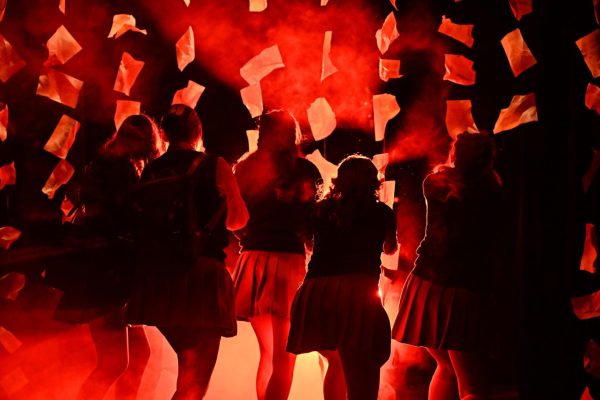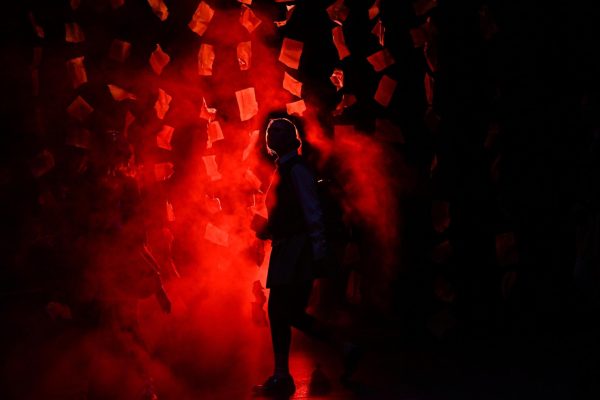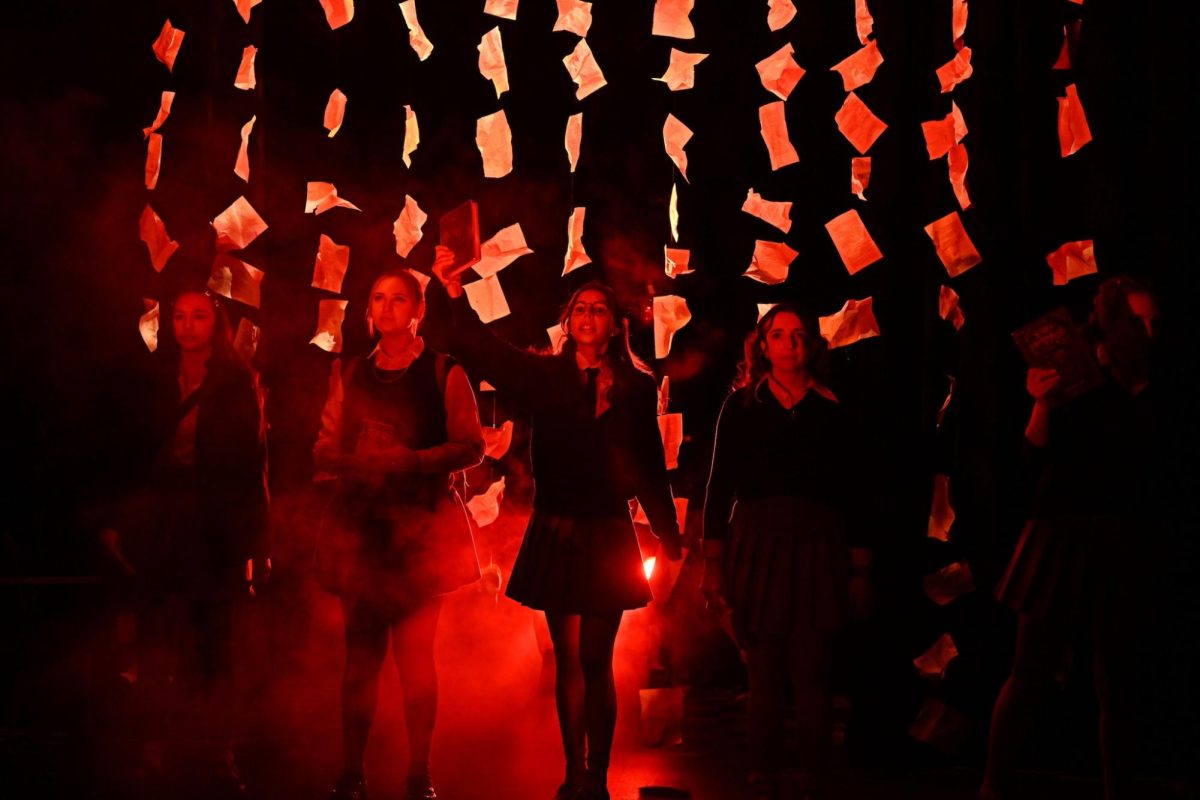“Trial By Fire,” a play based around book banning and censorship in the classroom, debuted at Kent State in the Wright-Curtis Theater Feb. 7, inviting audiences to reflect on social issues and create nuanced conversations.
Kent State launched its 55th annual May 4 Commemoration program with “Trial By Fire” written by Eric Mansfield, assistant vice president of university communications and marketing, and directed by Courtney Brown, associate professor of voice and acting.
“Trial By Fire” follows Georgia Grimm, a fictional KSU graduate and women’s studies teacher at Knight Academy, played by senior theatre studies major Iyona Johnston-Watkins. Grimm faces controversy after providing banned books to her students. The play explores themes of censorship and the impact of book bans on students and schools across the country.

Mansfield highlighted the overall message audiences should take away from this story.
“What is happening in Florida, Texas, Oklahoma, and elsewhere could happen here in Ohio,” Mansfield said. “This play is designed to put those messages out there and get an audience talking.”
Chalk-written titles on the floor of the stage showed a range of children’s literature banned books like “Charlotte’s Web” and “The Wizard of Oz.” Throughout the play, many other books are mentioned as well, including “The Feminine Mystique,” “The Handmaid’s Tale” and “The Color Purple.”
“I think it’s important to say that every book mentioned in the play either is or has been banned at one point in America,” Mansfield said. “I think for the audience, when they start to hear book titles of books they read, they should know those books have been banned.”
In the story, Grimm actively defies an Ohio governor’s banned book list, which leads to professional consequences, like losing her job. Her students, in retaliation, staged a book burning to challenge the rationale behind banning books from students.
But, before the students’ efforts are investigated and revealed by a state police detective, Dan Shaw, played by sophomore musical theatre major Thomas Anstine, the general public believes that Grimm told her students to go to the book burning to protest. This results in one of the students getting injured, ending with people siding with the governor even more.

Mansfield emphasized the role of theater in reflecting societal issues, referencing comparisons to historical storytelling methods used to critique governments and policies. He said illustrating social commentary is the root of arts and theater.
“The arts are both entertaining, but also a mirror to society,” he said. “We saw that with Shakespeare — he wrote plays that mocked the government, trying to call things out. We have seen that historically through storytellers.”
“Trial By Fire” served as the opening event for the May 4 Commemoration, aligning with its effort to engage with issues related to free speech and activism.
The May 4 Commemoration has been held every year since the 1970 Kent State shooting to honor and remember those affected by the day’s events. It serves as a chance to reflect on history and its relevance to modern contemporary issues, such as freedom of speech.
“Theater has a way of striking a chord with people because they are not on their phones, they are close enough to see the actors and feel the story,” Mansfield said.
Felicity Scott is a reporter. Contact her at [email protected].


